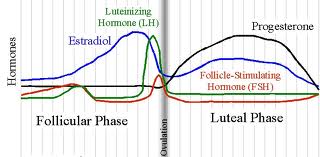POTS and the Menstrual Cycle
Any female POTS patient will tell you that the only thing worse than constant nausea, shifting blood pressure, racing pulse, continuous light-headedness, devastating fatigue, and inexplicable dehydration—is having all of that—AND your period.
What Happens During the Menstrual Cycle in POTS Patients?
The menstrual cycle takes a toll on patients with Postural Orthostatic Tachycardia. It’s during the actual 5-7 day bleeding phase that patients will feel the acute loss of blood volume which, of course, will make them feel drained and exacerbate all of their usual symptoms—including, in particular, fatigue.
The menstrual cycle revolves around changes in hormones which are aimed at preparing an egg for maturation and release. It’s also a time to prepare the uterine lining to accept the fertilized egg and allow it to develop. When your bleeding stops, your estrogen levels will quickly start rising, as well as your FSH (Follicle Stimulating Hormone)—which is done in order to encourage one of the eggs to grow. This part of the process peaks at about day 14 of your cycle and is called ovulation. It’s at this time in your cycle that progesterone levels will begin to quickly raise, and the egg has approximately 48 hours to become fertilized.
It is AFTER the phase of ovulation has passed that blood levels of estrogen and progesterone are rapidly rising and this is what seems to contribute to better postural blood pressure control—lessened tachycardia and overall energy.
Say the egg is not fertilized during this period—and instead the two main hormones (estrogen and progesterone) rapidly and suddenly drop straight down to almost nothing. The uterus sheds its lining (otherwise known as menses or a “period”) and this is when POTs patients may feel their worst.
What Can POTS Patients Do to Treat Their Symptoms During Their Period?
- Saline IV Therapy – If a patient can find a way to obtain IV saline during their period, this would be a particularly good time to do it!
- Avoid Ibuprofen – as well as aspirin or any other substance that makes bleeding heavier or last longer.
- Treat Iron Deficiency – If a POTs patient has any tendency towards iron deficiency from their periods then they must address this either by taking oral iron supplements during the month or by receiving IV iron intermittently—which is very easy to do in the office setting—even at the same time as a regular Saline IV Therapy appointment.
- Contraceptives – Oral Contraceptives may have to be taken by some POTS patients to better regulate the timing and the amount of bleeding.
Patients should also be warned that they may experience exaggerated mood swings and severe fatigue. It may be a good idea to forewarn employers or their school that they may be absent during this period.
